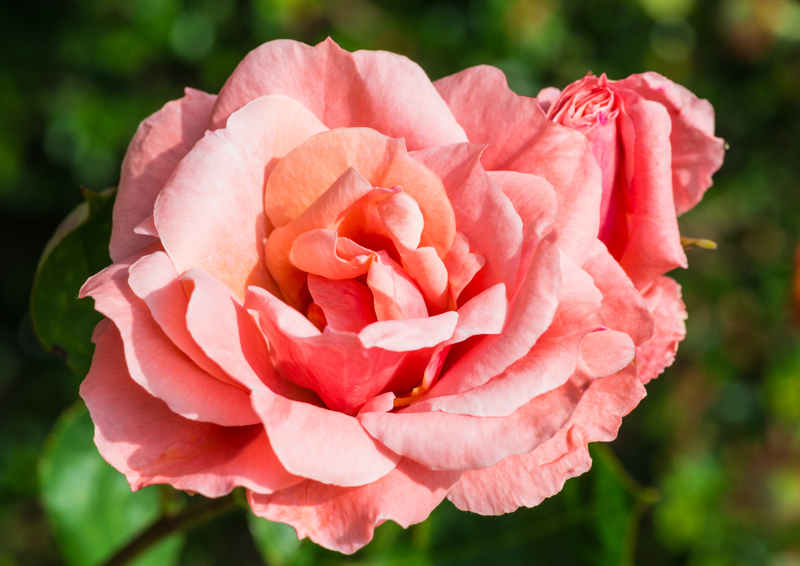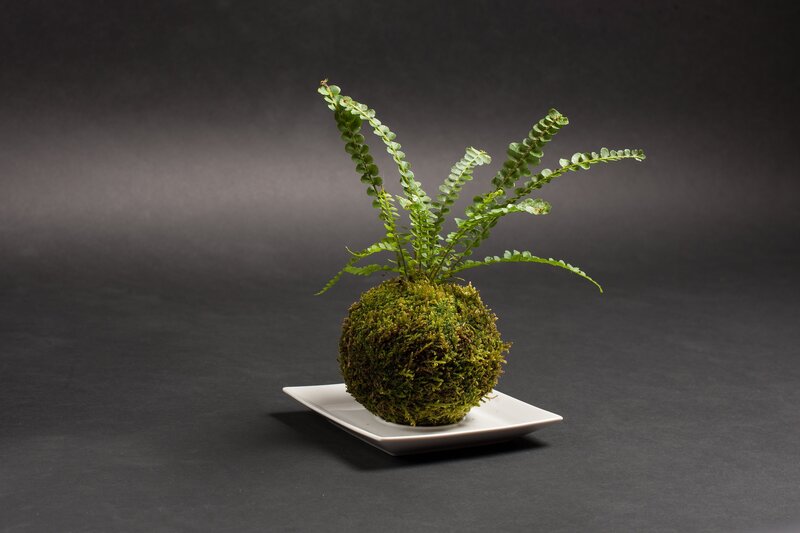Perfectly Proportioned Evergreens: 10 Trees for Modest Gardens
Evergreens bring life and structure to gardens all year round. Their foliage endures through every season, providing verdant splendor even in the heart of winter. But finding compact evergreen trees suited for smaller gardens can be challenging for many homeowners and landscape enthusiasts.
If you're searching for small evergreen trees perfect for restricted outdoor spaces, this comprehensive guide will help you make the best selection. Let's explore ten well-behaved evergreen tree varieties that won't overwhelm your modest garden but will add beauty, structure, and color for years to come.
Why Choose Evergreens for Compact Gardens?
Before diving into our expert list, it's helpful to understand why evergreens are such valuable assets for smaller landscapes:
- Year-Round Interest: Evergreens ensure your garden remains lively, even when deciduous trees go dormant.
- Low Maintenance: Most require less pruning and care compared to other decorative trees.
- Privacy and Screening: Many compact evergreens make ideal screens or living fences on smaller plots without taking over the space.
- Wildlife Value: They support local fauna, providing shelter and food when other plants offer little.
- Design Structure: With their persistent foliage and symmetrical growth, evergreens create strong visual anchors for garden layouts.
By choosing the right proportioned evergreens, you can enjoy all of these benefits without dealing with trees that outgrow their allotment or require excessive maintenance.

Top 10 Perfectly Proportioned Evergreen Trees for Modest Gardens
Below, you'll discover our compilation of ten best small evergreen trees that offer stunning beauty while remaining manageable in even the most modest urban and suburban landscapes.
1. Dwarf Alberta Spruce (Picea glauca 'Conica')
- Mature Size: 6-8 feet tall, 3-5 feet wide
- Features: Delightful, densely-packed conical form; soft, bright green needles; slow growth
Beloved for its perfect miniature Christmas-tree shape, the Dwarf Alberta Spruce is ideal for entranceways, patios, or as a specimen tree. Its slow, compact growth means you can enjoy it for many years without excessive pruning. This small evergreen conifer thrives in cool, sunny spots and suits both pot and in-ground plantings.
2. Korean Fir (Abies koreana)
- Mature Size: 10-15 feet tall, 6-8 feet wide
- Features: Glossy dark green needles with silvery undersides; striking purple cones
Korean Fir brings color and elegance to smaller gardens thanks to its unique two-tone needles and showy cones. Its controlled vertical growth and compact footprint make it a standout among perfectly proportioned evergreen trees. Grow it in full sun and moist, well-drained soil for best results.
3. Sky Pencil Holly (Ilex crenata 'Sky Pencil')
- Mature Size: 6-8 feet tall, 2 feet wide
- Features: Upright columnar habit; glossy green leaves; ideal for formal structure
If your garden needs vertical accents or natural privacy screens, Sky Pencil Holly is unmatched. Its ultra-slim profile is perfect for tight spaces and container gardens, and its evergreen foliage remains vibrant all year.
4. Japanese Cedar 'Globosa Nana' (Cryptomeria japonica)
- Mature Size: 3-4 feet tall and wide
- Features: Rounded, dense mound; soft, feathery blue-green needles
This unique, compact selection of Japanese Cedar forms a neat, globe-like shrub or small tree. Its fine foliage adds texture to modest gardens, and its low-growing nature ensures it won't outgrow small beds.
5. Mugo Pine (Pinus mugo var. pumilio)
- Mature Size: 3-5 feet tall and wide, depending on variety
- Features: Irregular, spreading form; rich green needles; tolerant of diverse conditions
The low-maintenance, drought-tolerant Mugo Pine is prized for rock gardens, slopes, and boundaries. Its compact forms create evergreen charm in modest yards with minimal fuss.
6. Yew (Taxus baccata 'Repandens')
- Mature Size: 2-4 feet tall, up to 10 feet wide
- Features: Spreading, ground-hugging habit; deep green needles; red berries in winter (note: toxic if ingested)
The spreading English Yew is an excellent option for foundation plantings and hedges in small gardens. Its evergreen foliage adds year-long color and texture. Prune annually to maintain its ideal shape and size.
7. Dwarf Hinoki Cypress (Chamaecyparis obtusa 'Nana Gracilis')
- Mature Size: 3-5 feet tall and wide
- Features: Tight, layered fans of dark green foliage; slow-growing, elegant form
This refined dwarf evergreen conifer is perfect for Japanese-inspired gardens, rockeries, or accent plantings. The Dwarf Hinoki Cypress maintains a petite form and intricate texture, requiring very little attention.
8. Weeping White Spruce (Picea glauca 'Pendula')
- Mature Size: 8-12 feet tall, 3-4 feet wide
- Features: Dramatic cascading branches; slender, upright habit
If you want a sense of movement and elegance, choose the Weeping White Spruce. Despite its height, its compact base allows it to fit into smaller gardens, while its pendulous branches create a strong visual impact.
9. Eastern Redbud 'Forest Pansy' (Cercis canadensis 'Forest Pansy')
- Mature Size: 10-15 feet tall and wide
- Features: Reddish-purple foliage; pink spring flowers; multi-season interest
While not a "true" evergreen, the Forest Pansy Redbud offers excellent winter structure and beautiful foliage. Its size, form, and striking early-season flowers grant it a rightful spot among perfectly proportioned trees for modest gardens.
10. Star Magnolia (Magnolia stellata)
- Mature Size: 10-15 feet tall and wide
- Features: Slender, multi-stemmed habit; star-shaped white flowers in early spring; dense branching
The Star Magnolia is another broadleaf evergreen alternative whose structure and year-round branching add valuable form and privacy. Its compact shape suits small gardens, and when it bursts into bloom, it's a true showstopper.
Tips for Choosing the Best Compact Evergreen Trees
Not all evergreens grow at the same speed or maintain the same dimensions. When selecting the perfectly proportioned evergreens for your modest garden, keep these factors in mind:
- Growth Rate: Slow-growing varieties generally require less pruning and yield finer shapes over time.
- Mature Size: Always check the mature height/width to avoid future overcrowding.
- Climate Suitability: Make sure your chosen evergreen tolerates your USDA Hardiness Zone.
- Sunlight Needs: Some evergreens thrive in shade, while others require full sun--match your site accordingly.
- Shape and Habit: Determine if you prefer upright, pyramidal, rounded, or weeping forms for specific spots.
Investigate each species' requirements before purchase to ensure optimum health and happiness for your small garden trees.
Design Ideas: Positioning Evergreens in Small Spaces
Whether you possess a petite urban courtyard, a suburban side yard, or a slim planting strip, evergreen trees for modest gardens are versatile elements for design impact. Consider these creative uses:
- Specimen Plantings: Select a single compact tree as a focal point--near an entry, at the end of a path, or within a flower bed.
- Screening and Borders: Use columnar or bushy small evergreens to define spaces, obscure eyesores, or divide garden zones.
- Containers and Pots: Many dwarfed or slow-growers thrive in containers, lending height and greenery to patios or decks.
- Mixed Beds: Combine perfectly proportioned conifers with shrubs, perennials, and groundcovers for texture and seasonal interest.
- Multi-Season Appeal: Pair broadleaf and needle-leaved evergreens with deciduous plants for color and year-round beauty.
Effective evergreen design is about restraint--avoid overcrowding and celebrate each tree's individual shape and character.
Essential Planting and Care Tips for Compact Evergreens
Well-chosen small evergreens will flourish for decades with just a little attention to their basic needs. Follow these best practices for planting and maintenance:
- Amend the soil with compost before planting, and ensure excellent drainage.
- Mulch around the base to conserve moisture and suppress weeds, but keep the mulch away from the trunk.
- Water deeply during establishment and in prolonged dry spells, especially in the first two years.
- Prune only as needed to maintain form and remove any dead or damaged branches; avoid over-pruning which can harm the tree.
- Fertilize sparingly: Overfeeding can cause unwanted rapid growth or stress. A slow-release, balanced fertilizer in early spring suffices for most compact evergreens.
Remember that every tree, even the most "modest," will need space to stretch its roots and branches over time.

The Timeless Appeal of Perfectly Proportioned Evergreens
The enduring popularity of evergreens in landscaping comes down to their resilience, aesthetic value, and year-round adaptability. The ideal perfectly proportioned evergreen tree serves both practical and decorative purposes in any small garden.
From Dwarf Alberta Spruce to Hinoki Cypress and the elegant Weeping White Spruce, there's a wealth of compact options for different tastes and color schemes. Evergreen trees for modest gardens provide privacy, shade, wildlife habitat, and a welcome feeling of permanence.
Don't let limited space deter you from adding character and structure to your outdoor haven. Instead, choose wisely from these ten exceptional evergreen trees--and watch your small garden stand lush and vibrant through every season.
Ready to Plant?
Each tree listed above can become a signature feature in a modest landscape. With careful planning and a thoughtful approach to scale, your garden will be transformed--one beautifully proportioned evergreen at a time.
Frequently Asked Questions:
-
Q: How often should I prune compact evergreens?
A: Most small evergreen trees need minimal pruning. Remove weak or crossing branches in late winter or early spring and lightly shape if necessary. Excessive pruning can stress the tree. -
Q: Can these small evergreens be grown in pots?
A: Absolutely! Many of the compact varieties, including Dwarf Alberta Spruce and Sky Pencil Holly, thrive in well-draining containers. Repot every few years to refresh the soil and accommodate root growth. -
Q: Which small evergreen is best for shade?
A: Yew (Taxus baccata 'Repandens') is tolerant of low light and ideal for shadier spots. -
Q: Are any of these evergreen trees deer-resistant?
A: Some, like Japanese Cedar and Hinoki Cypress, are generally considered less attractive to deer, though local feeding habits vary.
Discover the power of well-chosen evergreens--the secret to a striking yet manageable garden.